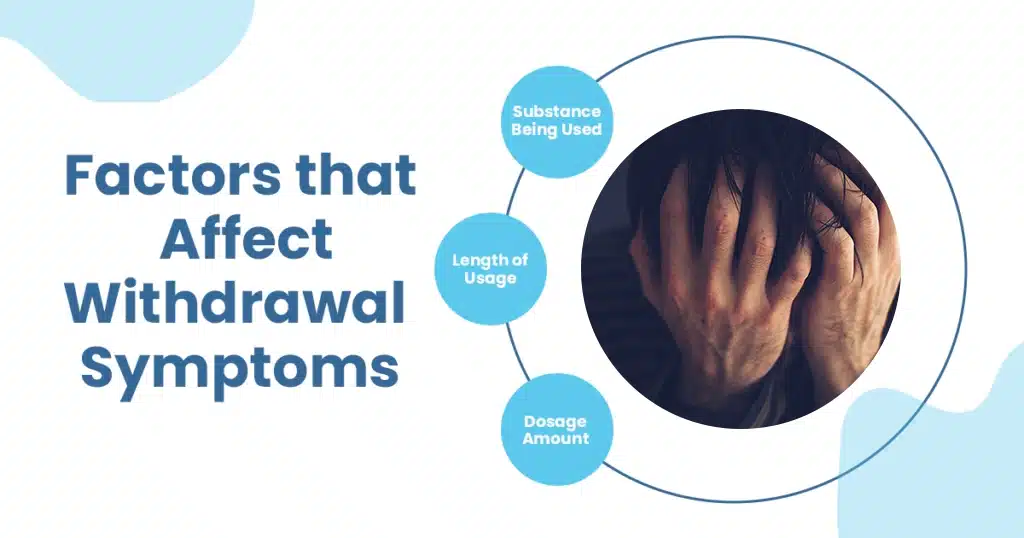Withdrawal is a painful process that happens after someone stops taking a mind-altering substance, but why exactly is it so miserable?
Withdrawal of any kind of substance can be harrowing and exhausting. Some of the most dramatic symptoms include nausea, sweating, shaking and even hallucination. So what’s going on with withdrawal symptoms? Why does withdrawal wreak such havoc on the body?
First, let’s talk drug addiction in general. There are lots of different substances you can become addicted to. Opioids are the most well-known addictive substances. Alcohol and caffeine addictions are common as well. You can get hooked on these substances because they alter the release of neurotransmitters and change the way the brain works. Sometimes with pleasing results, but after long-term exposure to a drug, the brain tries to restore normal functioning through adaptations. This is what the building up of drug tolerance is. If this goes on for a long time, the user becomes dependent, needing the drug to maintain just normal functioning and avoid withdrawal symptoms. When that user goes off of the drug, the brains compensation is still in place, leading the brain to be more active in certain areas. This leads to what’s called withdrawal syndrome.
Withdrawal symptoms can develop in 24 hours and last anywhere from a week to two months on end. There are lots of different mechanisms that create dependency and withdrawal. One example is how opioids affect a brain chemical called noradrenaline. Opioids are known to cause drowsiness, slowed respiration and low blood pressure. This is because the opioid suppresses the neurons that produce noradrenaline. Over time, with opioid dependence, the body counteracts the suppression by releasing more of the chemical to support these functions at a normal level. Even if the user stops taking the drug, the body still releases an elevated level of noradrenaline which produces withdraw symptoms like jitters, anxiety, muscle cramps, and diarrhea.

Similarly to how opioids affect noradrenaline, alcohol affects the production of another brain chemical called GABA, which governs neuron activity. GABA is a chemical messenger that is widely distributed in the brain. GABA’s natural function is to reduce the activity of the neurons to which it binds. When GABA and neurons fire rapidly, you feel excited and hyper thoughts are flying around a mile a minute. When GABA neurons subside, you feel calmer and more relaxed. Sometimes you may feel so relaxed that you are stumbling around for your words, kind of sedated. So you can guess which alcohol does. Yeah, it increases GABA. Chronic alcohol use impairs the ability of GABA. More alcohol is needed to get the same relaxing effect and once alcohol intake stops, GABA levels drop dramatically, which makes the brain overreact and can lead to things like teeth chattering, uncontrolled shaking, jumpiness, and even seizures. That last one can even be deadly!
Well, you may think withdrawal doesn’t apply to you! Put that coffee down! I know most of you probably drink it! Coffee is the world’s most popular drug, but go without it for a day and you might experience a headache, tiredness, feeling low, less sociable and even feeling like you’ve got the flu! Caffeine works on the receptors for the neurotransmitter adenosine. Adenosine facilitates sleep by calming the brain down. Caffeine sneaks in there and binds to adenosine receptors so it blocks adenosine from doing its job. That’s why you perk up with a morning cup of joe. Drinking caffeine regularly can also increase the number of adenosine receptors in the brain, so you end up needing more caffeine to get the same effect. In other words, you build up a tolerance. Caffeine also causes your brain to release dopamine, so you tend to feel good after your morning coffee. Once you stop drinking coffee, you crash, because suddenly your body is without the feel-good boost and anti-sleepiness of the caffeine. Thankfully, withdrawal from caffeine only lasts a few days.
Withdrawal and the symptoms that come along with it are no joke and not to be underestimated. One of the worst feelings you can go through in life is the period of withdrawal. The Haven Detox in West Palm Beach, FL specializes in medically tapering people and helping them withdrawal safely and comfortably from substances like opiates and alcohol. If you or someone you know is struggling with withdrawal, please reach out to us. #RecoveryStartsHere